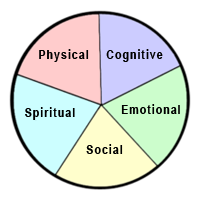
If you do not set aside time to take care of yourself, you cannot give your best as a caregiver. “Respite” is the term used to describe a break for caregivers made possible by having a substitute caregiver step in to provide support. Everyone needs and deserves respite. Even the loved one being cared for enjoys seeing a different face and having a conversation with someone who has different things to talk about.
Respite can be arranged informally with friends, family or other people in your broader social network (e.g., members of the church or clubs you and/or your loved one belong to). In many cases, people you know have wanted to give support, but did not know how to offer or what would be most helpful. Asking them to step in so you can have respite clearly indicates how they can best give support. If the person you care for has significant medical care needs, you may have to provide training to your respite caregiver. An alternative is to arrange for medically-qualified respite staff through an agency. Costs for this service may be covered by the provincial government or health insurance. (See Module 4 for more details.)
 What you do with your respite time depends on your
physical, cognitive, emotional, social and spiritual needs.
What you do with your respite time depends on your
physical, cognitive, emotional, social and spiritual needs.
PHYSICIAL HEALTH
To maintain or improve your physical health, engage in a recreational activity or exercise that you enjoy doing. Get enough sleep. Make healthy food choices. All of these actions will help you maintain a healthy weight and increase your
energy level. Research consistently shows that one drink a day for women and two for men can be beneficial for your health (unless there is a medical condition or alcohol dependency that requires abstinence); a glass of red wine offers
the most health benefits (as the French already know). https://www.mayoclinic.org/healthy-lifestyle/stress-management/in-depth/caregiver-stress/art-20044784
COGNITIVE HEALTH
To maintain your cognitive (or intellectual) health, do things that stimulate your mind or learn something new. Read a book. Watch a thought-provoking movie or TV program. Go to a lecture or a concert. Take a course. Do a puzzle or play a game.
EMOTIONAL HEALTH
To maintain your emotional health, engage in a hobby or other activity that gives you joy. Be with people who make you laugh. Think about something besides your loved one and your responsibilities or worries, and don’t feel guilty about taking time for yourself. Find the positives in any situation; the silver lining on the cloud may be thin, but it’s there.
SOCIAL HEALTH
 To maintain your social health, make
an effort to keep in touch with friends and family. Connect with them on Facebook or other social media. Use the “chat” function to converse directly or to arrange a phone call or meeting. Set up a regular schedule
for phone calls with family or friends or a weekly “coffee date.” Use Skype™ to talk face-to-face with those who are housebound or live far away. Join a group or club and make new friends.
To maintain your social health, make
an effort to keep in touch with friends and family. Connect with them on Facebook or other social media. Use the “chat” function to converse directly or to arrange a phone call or meeting. Set up a regular schedule
for phone calls with family or friends or a weekly “coffee date.” Use Skype™ to talk face-to-face with those who are housebound or live far away. Join a group or club and make new friends.
SPIRITUAL HEALTH
Spirituality means different things to different people. For some, spiritual health is tied to religious observances and beliefs. For others, it is simply related to deeply-held values and their expression. Give yourself time for quiet reflection, mediation or prayer. Be mindful of what is going on in your life and your feelings. Learn what makes you feel good inside and what you need to do to be your best self. Feed yourself spiritually every day - purchase fresh flowers, get a shoe shine, be kind to a stranger, play with a child, play fetch with a dog, or enjoy a sunset.
Shirley discusses the importance of compensating strategies for herself and her loved one.
Mufty discusses the need to let others become involved in the caregiving process.
Believe in miracles; believe in hope.
Educate yourself about the medical situation and question the healthcare professionals.
Take cues from your loved one, unless it places them in danger.